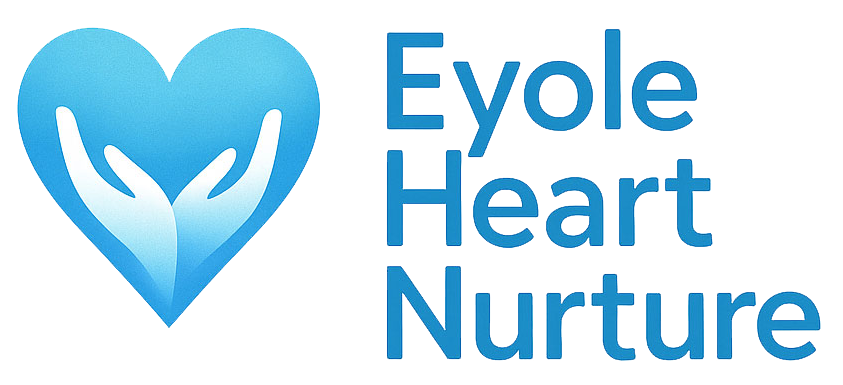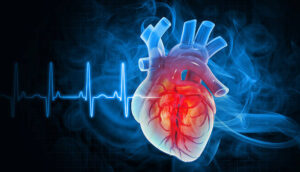“Taming my ego wasn’t just about my mind—it saved my heart.”
When Sarah, a 52-year-old schoolteacher, collapsed during a parent-teacher conference, she thought it was just exhaustion. A trip to the emergency room revealed something far more serious: early signs of coronary artery disease (CAD). “I was shocked,” Sarah recalls. “I thought I was healthy, but my doctor said stress and emotional patterns were taking a toll on my heart.” Her journey to recovery wasn’t just about diet or exercise—it was about taming her ego and nurturing her heart. At Eyole Heart Nurture, we believe that understanding the interplay between ego and heart health can transform lives, as it did for Sarah.
The Ego-Heart Connection: What Science Says
A 2022 study published in ScienceDirect found that “ego-strength moderates the association of worry and anger rumination with adjustment problems to heart disease”. This means that a strong ego can buffer the negative effects of emotional stress on heart health, while a weak or inflated ego can exacerbate them. Similarly, a 2018 ResearchGate study revealed that “spiritual health mediates the relationship between ego-strength and adjustment to heart disease,” suggesting that a balanced ego, supported by spiritual practices, enhances coping mechanisms.
Smart Wellness further explains that an inflated ego can lead to “chronic stress, hypertension, and heart disease” by fostering arrogance or defensiveness, which strains both mental and physical health. For Sarah, this rang true. Her tendency to overwork and resist feedback—hallmarks of an unchecked ego—had fueled stress that quietly damaged her heart.
Sarah’s Path to Healing: Balancing Ego and Heart
Sarah’s diagnosis was a wake-up call. With guidance from her cardiologist and a therapist, she embarked on a journey to align her ego with her heart’s needs. Here’s how she did it, backed by evidence-based strategies:
1. Managing Emotional Triggers
Sarah’s constant worry about her students’ performance and anger at administrative pressures were draining her. The ScienceDirect study notes that “worry and anger rumination showed a significantly positive association with adjustment problems to heart disease”. Sarah learned mindfulness techniques to interrupt these cycles, reducing her stress hormones, which the American Heart Association links to lower cardiovascular risk.
2. Cultivating a Healthy Ego
A healthy ego isn’t about arrogance but about resilience. The ResearchGate study highlights that “ego-strength as a personality determinant increases adaptability”. Sarah practiced self-reflection, journaling to understand her triggers and build self-awareness. “I stopped seeing criticism as a personal attack,” she says. “It freed me to focus on my health.”
3. Embracing Spiritual Health
Sarah found solace in meditation and prayer, which the ResearchGate study credits for mediating ego-strength and heart disease adjustment. “Connecting with something bigger than myself calmed my ego,” she shares. Practices like gratitude, as noted in a PubMed study, can enhance spiritual well-being and improve quality of life in heart patients.
4. Avoiding Harmful Habits
Sarah cut back on caffeine and late-night work, both of which exacerbated her stress. Smart Wellness warns that “an inflated ego can lead to substance abuse or overwork, further impacting heart health”. Instead, she prioritized sleep and relaxation, aligning with recommendations to avoid overexertion in heart patients.
The Ego Explained: A Heart-Healthy Perspective
The ego, as defined by Smart Wellness, is “the part of the mind that mediates between the conscious and unconscious, representing our sense of self”. Unlike the heart, which pumps life through our body, the ego shapes how we perceive and react to the world. An unbalanced ego—either too weak or overly inflated—can trigger stress responses that harm the heart.
Stages of Ego Development
Psychologists outline three broad stages of ego development:
- Pre-Egoic: Driven by basic needs and impulses, often lacking self-awareness.
- Egoic: Focused on self-identity, where pride or defensiveness can dominate.
- Trans-Egoic: A balanced state of self-awareness and connection to others, promoting emotional and physical health.
Signs of an Unhealthy Ego
An inflated ego manifests as arrogance, resistance to feedback, or chronic stress, while a weak ego may show as low self-esteem or indecision. Both can elevate cortisol levels, contributing to heart disease, as noted by Smart Wellness.
Practical Steps to Heal Your Ego and Heart
- Practice Mindfulness: Daily meditation reduces rumination, as supported by ScienceDirect.
- Seek Feedback: Embrace constructive criticism to build ego resilience.
- Engage in Spiritual Practices: Prayer or gratitude journaling, as per ResearchGate, enhances coping.
- Exercise Moderately: The American Heart Association recommends 150 minutes of moderate exercise weekly to support heart health.
- Connect with Community: Social support, as highlighted in PubMed, reduces stress and improves heart outcomes.
FAQs:
What Are the Emotional Causes of Heart Disease?
Chronic stress, anger, and worry can elevate cortisol and blood pressure, contributing to heart disease, per ScienceDirect.
What Is the Difference Between the Ego and the Heart?
The ego is the mind’s sense of self, mediating thoughts and actions, while the heart is a physical organ vital for life. An unbalanced ego can stress the heart, per Smart Wellness.
How to Improve Heart Health Quickly?
To improve heart health quickly, adopt a Mediterranean diet, exercise regularly, and practice stress-reducing techniques like mindfulness, as recommended by the American Heart Association.
What Not to Do When You Have Heart Problems?
Avoid smoking, excessive alcohol, overexertion, and ignoring symptoms like chest pain, per cardiologist guidelines.
What Is Ego in the Heart?
Ego in the heart refers to how self-perception influences emotional stress, impacting cardiovascular health, as per ScienceDirect.
What Are the Three Stages of Ego?
Pre-egoic (impulse-driven), egoic (self-focused), and trans-egoic (balanced and connected), per psychological literature.
What Is the Root Cause of the Ego?
The ego arises from early experiences and social interactions, shaping self-identity, often triggered by fear or insecurity, per Smart Wellness.
What Are the Symptoms of Ego?
Arrogance, defensiveness, or low self-esteem indicate an unbalanced ego, per Smart Wellness.
How Do I Heal My Ego?
Practice mindfulness, seek feedback, and engage in spiritual practices like gratitude, as supported by ResearchGate.
What Are the Signs of a Healthy Ego?
Confidence without arrogance, openness to feedback, and emotional resilience, per Smart Wellness.
Next Steps
At Eyole Heart Nurture, we encourage you to take control of your ego and heart, creating a balanced, healthier you.
As Sarah says, “Taming my ego wasn’t just about my mind—it saved my heart.”





